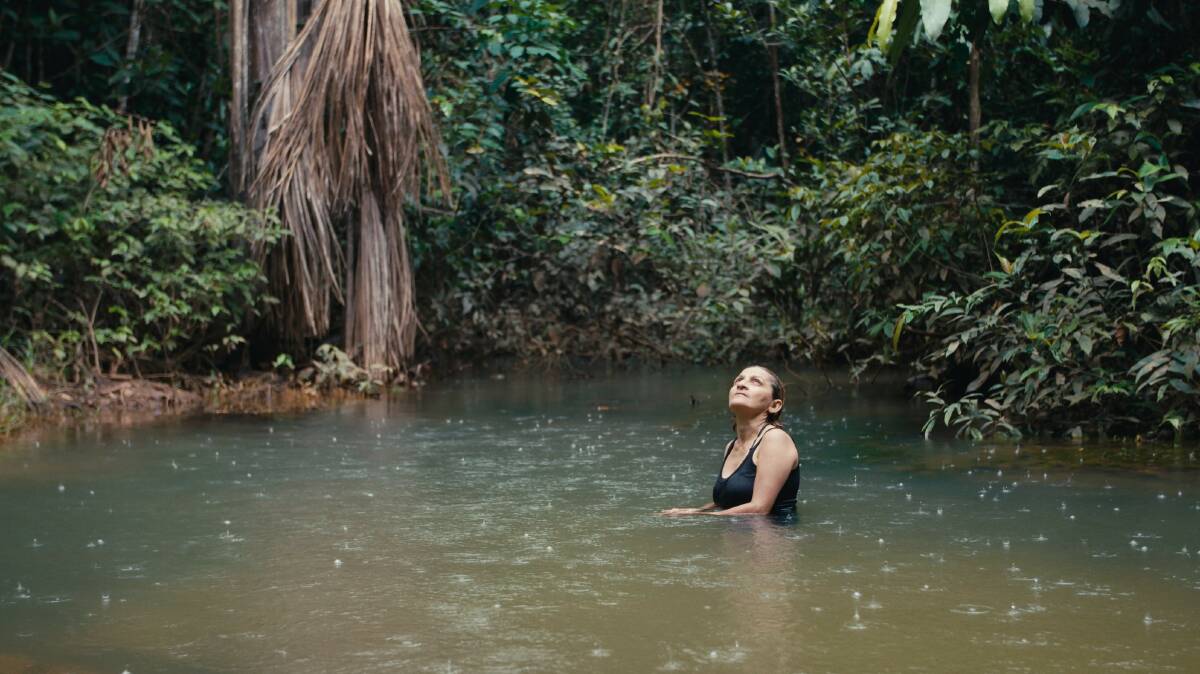The Territory. PG, 85 minutes. 3 stars
Subscribe now for unlimited access.
$0/
(min cost $0)
or signup to continue reading
Some movies really do make you despair. This documentary, directed by Alex Pritz, is one of them.
It's about the conflict between the indigenous Uru-eu-wau-wau people - a small and declining community of less than 200 people on reserved land in the jungles of the Brazilian Amazon - and the farmers and illegal settlers who want to claim that land and clear it for their own use.
Not only do the indigenous people want to retain the land that's long been theirs for themselves and their own culture, but as is pointed out, the Amazon rainforest is important in providing oxygen to the Earth.

On the other side are people who say they just want to start their own farms and work for themselves rather than others. Some form an association and say they want to do things legally, others just invade the protected land and start cutting and burning.
A mass expansion into the reserved land would destroy a lot of flora and fauna as well as threatening what remains of the Uru-eu-wau-wau people (some of whom die of COVID during the period covered).
The indigenous affairs department seems unable or unwilling to intervene and the government led by Jair Bolsonaro is pro-development so there's no joy to be found there. The indigenous people do have a fierce and longtime advocate in Neidinha Bandeira, who straddles the modern and traditional worlds and who would be a good subject for a film herself.
The film is in Portuguese and Tupi-Kawahiva language with English subtitles.
Director Alex Pritz and crew filmed over three years. We're introduced to some of the Uru-eu-wau-wau people and there's a sense that generational change is happening - a young man, Bitaté Uru-eu-wau-wau, takes on a leadership role in the struggle. Calling in media and shooting their own footage for journalists - and this film - to use are part of a strategy to raise awareness and, the people hope, maintain their rights and land. They're making use of new technology to protect their own tradition - as well as, in one sequence, bows and arrows and fire as they confront some of the encroachers.
While the film's pro-Uru-eu-wau-wau, pro-environment sympathies are obvious and understandable, people from the other side are also interviewed and put forward their own arguments - that they have a God-given right to do what they're doing, that the Uru-eu-wau-wau produce nothing and simply live on the land. More sympathetic are those who simply say they want the chance to own and farm their own land. An allegation is made that big business is behind this, but it's not corroborated.
The cinematography and sound design are excellent, capturing the sights and sounds of the place and providing a subtle reminder of how much is at stake. But the film doesn't have quite the impact it should.
Despite the urgency of this documentary's message, it unfolds in a quiet, mournful way, almost as though it's conceding the hopelessness of the cause. And there's not a lot for viewers in the way of background or questioning - the filmmakers are sometimes a bit too invisible.
Even a couple of genuinely dramatic moments - when Neidinha fears her daughter is under threat and the death - apparently homicide - of one of the film's subjects are treated in a very understated way. Not that the film needed the hectoring and fact-fudging methods of Michael Moore, but a bit more urgency would not have gone astray. This situation isn't going to end well.
We've made it a whole lot easier for you to have your say. Our new comment platform requires only one log-in to access articles and to join the discussion on The Canberra Times website. Find out how to register so you can enjoy civil, friendly and engaging discussions. See our moderation policy here.
Our journalists work hard to provide local, up-to-date news to the community. This is how you can continue to access our trusted content:
- Bookmark canberratimes.com.au
- Download our app
- Make sure you are signed up for our breaking and regular headlines newsletters
- Follow us on Twitter
- Follow us on Instagram


